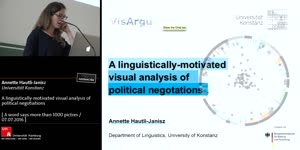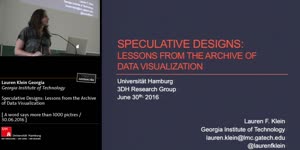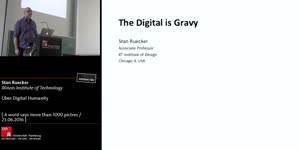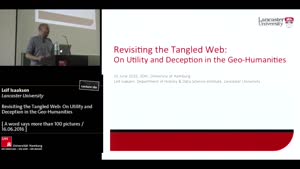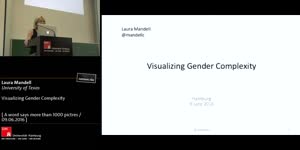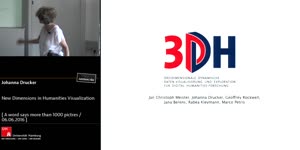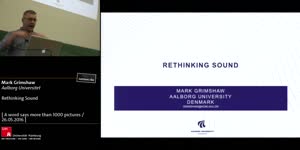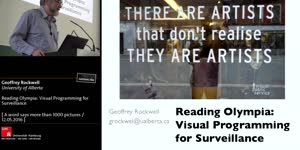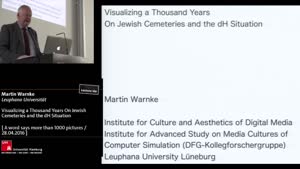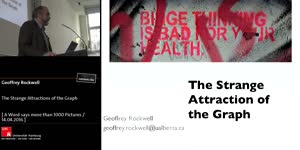Visualizing Gender Complexity - Laura Mandell - University of Hamburg
- Lecture2Go
- Catalog
- F.5 - Geisteswissenschaften
- Sprache, Literatur, Medien (SLM I + II)
- A word says more than 1000 pictures: Dynamic data visualization and exploration for the Humanities
Catalog
Visualizing Gender Complexity
With the advent of Digital Humanities methodologies the visualization of Humanities data has become more and more prominent. However, once the "wow-effect" of a "cool" visualization - such as a pie-chart, a word cloud, a diagram etc. - has worn off many Humanists begin to react with scepticism: is it worth the trouble? Doesn"t a "word say mor ethan thousan pictures"? Their scepticism seems justified: Most of the current visualization paradigms are derived from engineering and mathematics oriented applications. Most of them are context blind, a-historical and driven by an epistemology that reduces complex phenomena to a series of "data points" - which is exactly the opposite of how Humanists tend to look at their field of interest. - In this lecture series international visualization experts will explore new, philosophically and cultural history informed approaches to Humanities data visualization that respond to the Humanities" needs.
---
With the advent of Digital Humanities methodologies the visualization of Humanities data has become more and more prominent. However, once the "wow-effect" of a "cool" visualization - such as a pie-chart, a word cloud, a diagram etc. - has worn off many Humanists begin to react with scepticism: is it worth the trouble? Doesn"t a "word say mor ethan thousan pictures"? Their scepticism seems justified: Most of the current visualization paradigms are derived from engineering and mathematics oriented applications. Most of them are context blind, a-historical and driven by an epistemology that reduces complex phenomena to a series of "data points" - which is exactly the opposite of how Humanists tend to look at their field of interest. - In this lecture series international visualization experts will explore new, philosophically and cultural history informed approaches to Humanities data visualization that respond to the Humanities" needs.

